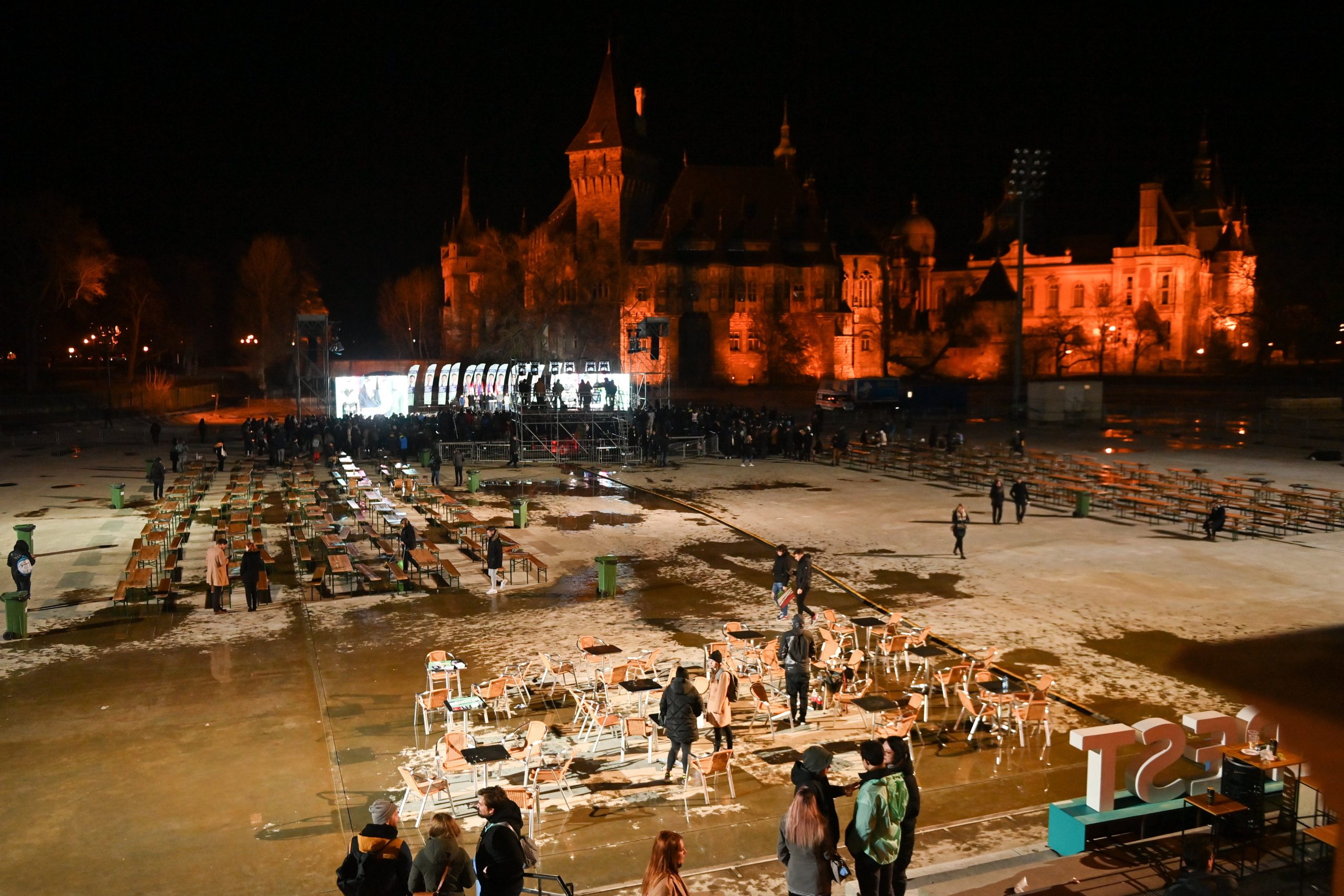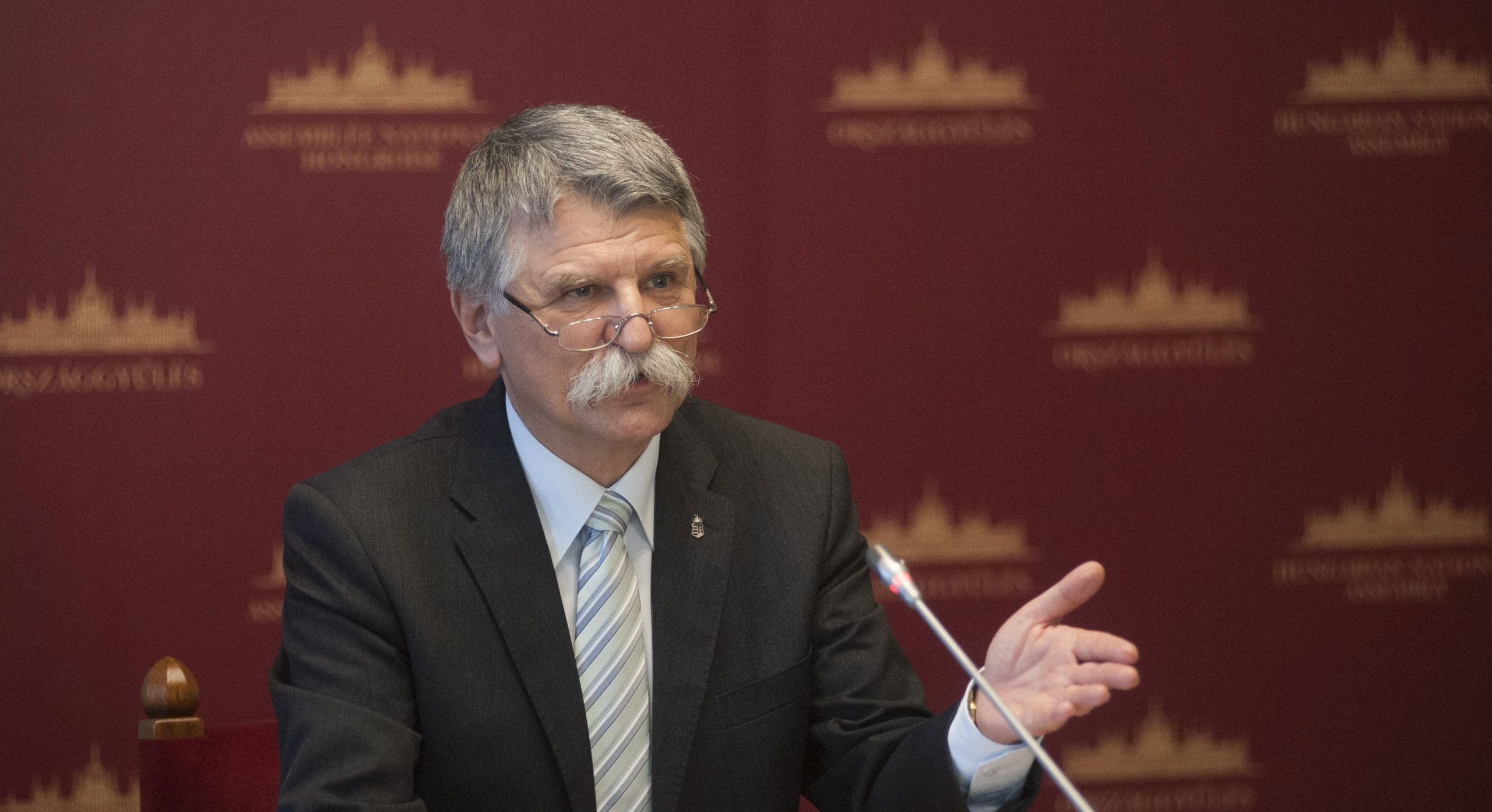
Even though there were 300,000 fewer voters at the ballot boxes this year than four years ago, 100,000 more cast their ballots for the ruling alliance than in 2018.Continue reading

House Speaker László Kövér said “we all have an obligation to preserve and strengthen that which holds us together”, in an interview with the weekly Mandiner on Thursday.
Kövér said the government was “doggedly” trying to act according to its vision of “a united nation with its various groups in solidarity with each other.”
“We think cooperation can be based on a fair and sustainable foundation: the homeland, national culture, respect for traditional values, and the obligation to serve national interests and sovereignty.”
Unfortunately, “politicians styling themselves as leftists or liberals, and pundits manipulating society” are not ready to accept that the “real meaning of politics” is maintaining and strengthening the nation, he said.
Today’s left-wing politicians “seem to belong to a spiritual world proletariat that has no God, no homeland, no ties, no family, or even gender. They try to eliminate all natural identities from life, and dissolve all natural communities,” he said.
Regarding the elections, Kövér said the scope of the landslide victory for the ruling Fidesz-Christian Democrat alliance was “unexpected on both sides”.
He insisted the opposition had expected to lose by a smaller margin, enabling them to cast aspersions on the election process and the legitimacy of the new government. “The only way out of that situation was a great victory,” he said.
He lambasted the opposition as “spineless”, saying that on election night, “his so-called allies humiliated [prime ministerial candidate] Péter Márki-Zay by letting him suffer alone on the stage, with his family behind him; as soon as he finished speaking, [Democratic Coalition head Ferenc] Gyurcsány and [Jobbik leader] Péter Jakab didn’t hesitate to hold him responsible for the debacle.”
The Fidesz government’s achievements since it came to power in 2010 were second to none, Kövér said. Hungary’s economic indicators, the falling risk of poverty and growing family subsidies were proof of their work, as was “the growing international weight of the country to the point where Fidesz-KDNP stood against the world at the election,” he said.
The referendum on child protection, held simultaneously with the election, brought “three and a half million valid votes, with an overwhelming majority in line with the government’s stance”, and so gave the government a mandate “even stronger than that of the 2016 referendum [on migration]” to represent the Hungarian viewpoint, he said.
The greatest challenges in the future will be connected to European politics because “the war will probably ruin political, economic and security ties between Russia and Europe for years,” Kövér said. “There is a serious risk of a new Iron Curtain falling across Europe.”
Kövér insisted Europe would weaken economically and politically if that happened.
“Although Russia’s culture is very different from the West and central Europe, it is still part of Christian Europe,” he said.
Featured photo by Dávid Pólya-Pető/MTI